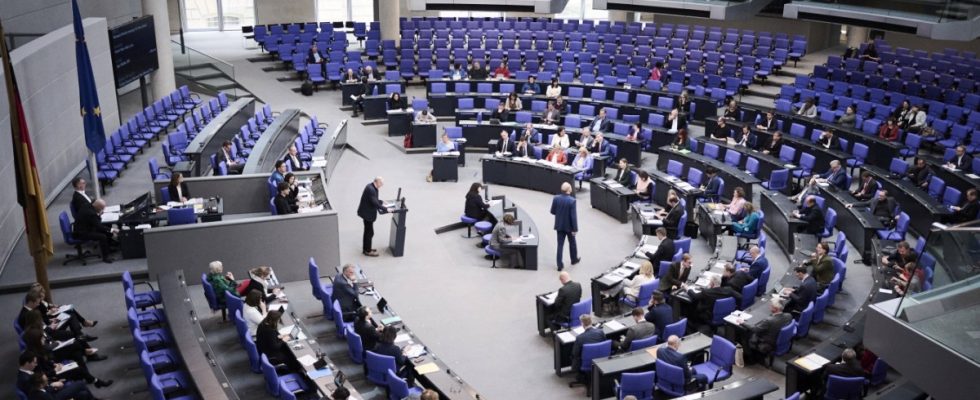It is not a very rewarding task to deal with yesterday’s suffrage when tomorrow’s suffrage is almost ready on the table. Therefore, no one would have been surprised if the Federal Constitutional Court had happily called off the hearing of a legal action by the Greens, Left and FDP against the electoral law of 2020, which – unsuccessfully – was intended to downsize the bloated Bundestag. The opposition parties at the time had filed a complaint against the reform of the black-red coalition, but recently applied for the proceedings to be suspended. Because the traffic light coalition has now decided on the reform of the reform, which is now in the last few meters.
Nevertheless, the second senate of the Karlsruhe court took up the matter, and the hearing was this Tuesday. Because of the repeat election in Berlin, the rules would have to be clarified, said Vice President Doris König.
Obviously, the court also wants to address a question with a high popularity factor. How comprehensible does the most important right in a democracy have to be? “Do voters have to be able to see how their vote affects the allocation of mandates?” asked Peter Müller, the rapporteur responsible for the procedure. “And is that the case here?”
is the stumbling block Clause 6 of the old electoral law. After that, overhang mandates will no longer be fully compensated, but rather three of these mandates will remain uncompensated. That’s a good thing for parties that win many constituencies, especially the CDU and CSU. In addition, direct mandates are offset to a limited extent against list mandates of the same party in another federal state. This is complex in itself, but the formulation has added a shovel of incomprehensibility to it, says Düsseldorf professor Sophie Schönberger, representative of the plaintiffs. “If the voters can no longer understand what happens with their vote, the integration function of the election suffers.”
Citizens also pay taxes, despite highly complex paragraphs, says a lawyer
The impetus from the judges’ bench revolved around the question of whether the paragraphs themselves really had to be at least somewhat understandable. Or whether the electorate shouldn’t be referred to the federal returning officer’s explanatory videos and whether the text of the law is more a matter for lawyers and administration. The citizens also pay taxes, despite the highly complex paragraphs, objected Heinrich Lang, a representative of the federal government. The answer will follow in a few months when the verdict is announced.
In a few months, the court will probably have to deal with tomorrow’s electoral law after all. The CDU and CSU have announced lawsuits because this reform – keyword direct mandates – turned out to be unfavorable for them. According to a report by time online leading Greens from the federal states, such as Hesse’s Economics Minister Tarek Al-Wazir and Baden-Württemberg’s Prime Minister Winfried Kretschmann. They would like to turn back the central point of contention: the abolition of the so-called basic mandate clause, which could jeopardize the entry into the Bundestag for the CSU and the left despite winning direct mandates.
But the top of the Greens parliamentary group is sticking to the reform. “Federal electoral law is an original federal matter,” said Britta Haßelmann, leader of the Greens parliamentary group Süddeutsche Zeitung. “Therefore, the reform project is not an act of approval. I assume that the law will now go through the Bundesrat and can therefore come into force as planned.” It was only on March 17 that the Bundestag, with the votes of the SPD, FDP and Greens, decided on an electoral law reform in order to permanently reduce the Bundestag, which had grown to 736 MPs. According to Haßelmann, the Greens do not want to move away from this: “The traffic light has succeeded where the Bundestag and several electoral law commissions have failed in recent years: to reform the electoral law with this reform in such a way that the size of the Bundestag is effectively and permanently limited to 630 seats .”

